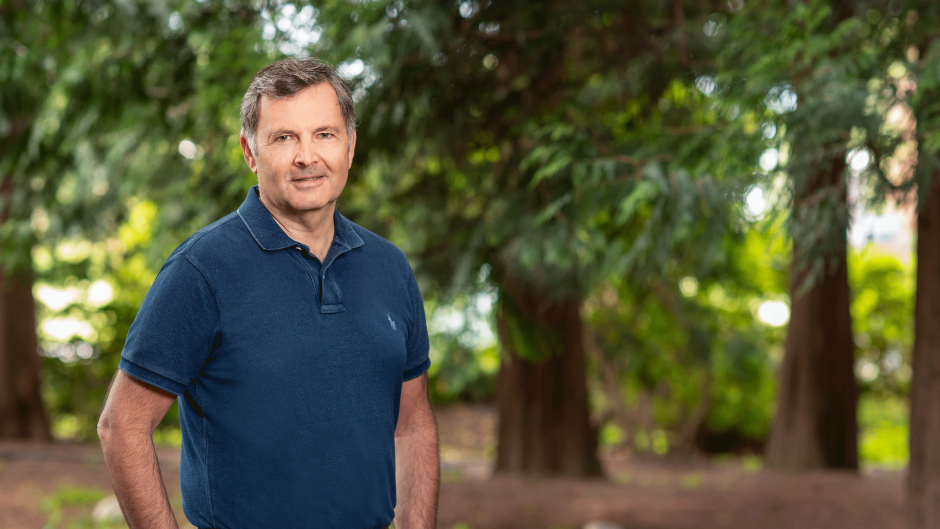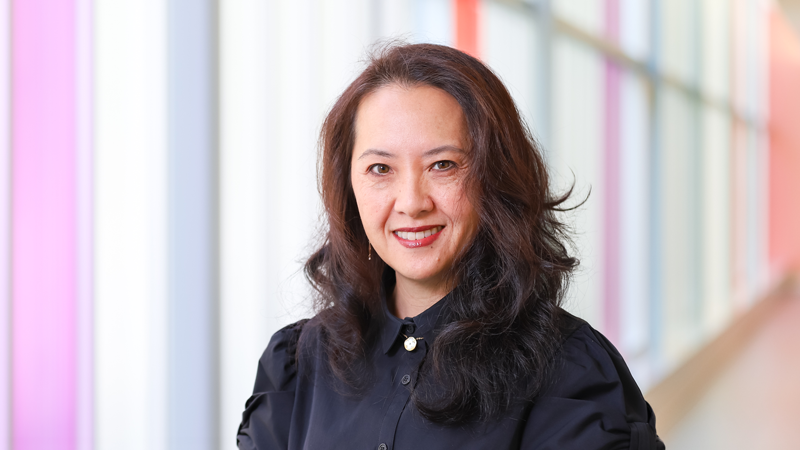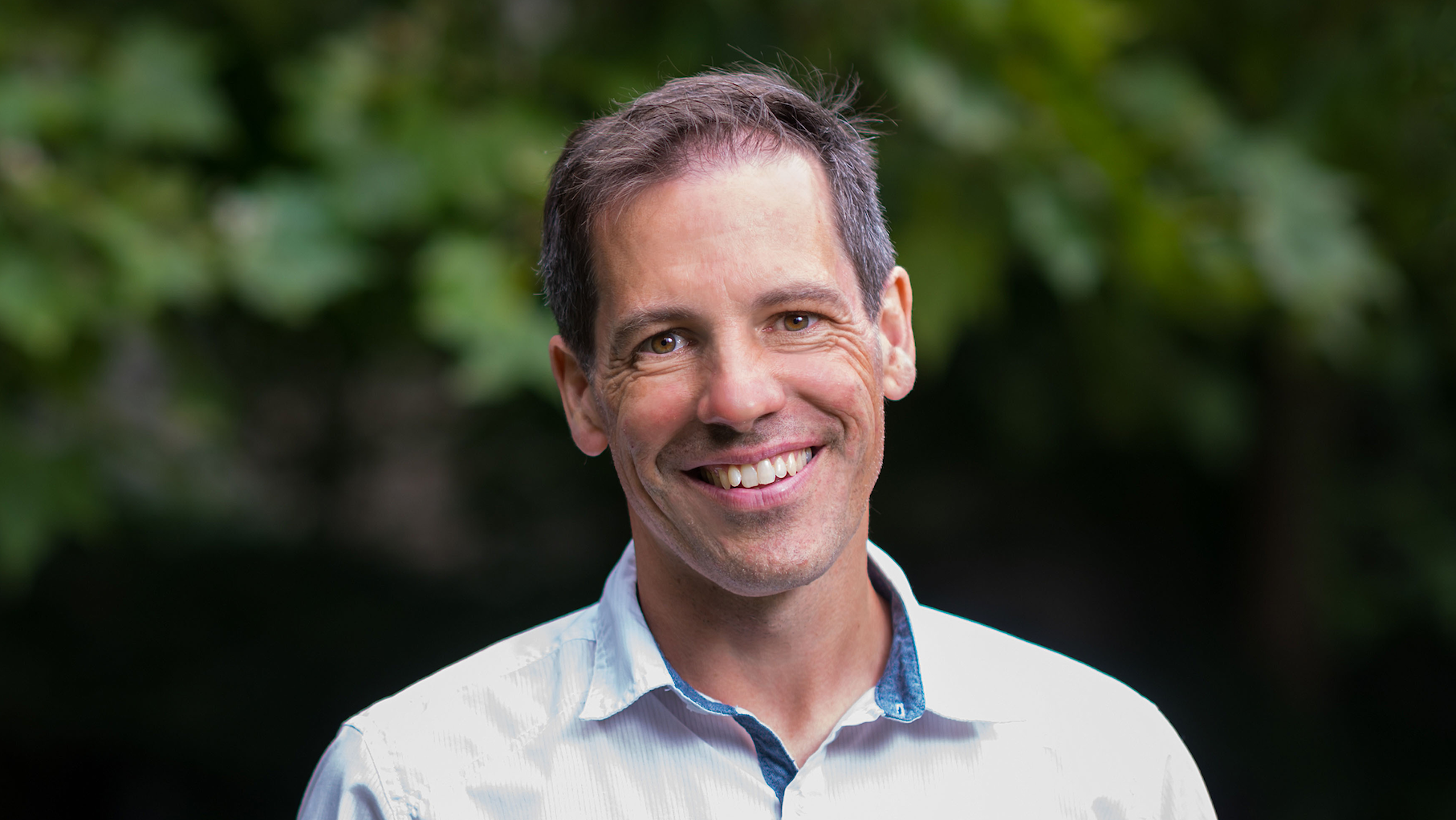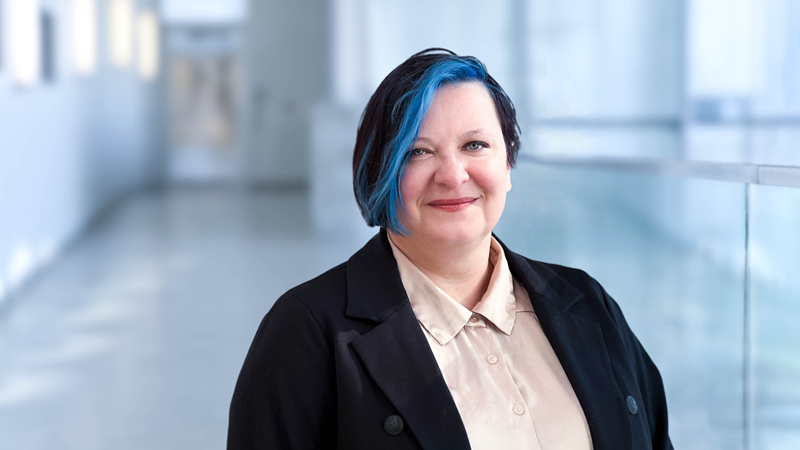
Dr. Rob Petrella has always been interested in pushing the boundaries of what it means to be a family physician and a team player.
As a family physician-researcher, he’s learned from the country’s best in sport and exercise medicine, many based at UBC. His work in exercise and healthy aging at Western University led to numerous collaborations around the world including with UBC Faculty of Medicine researchers over the past three decades.
Dr. Petrella, recently appointed Head, Department of Family Practice, is now poised to lead a team which will create a national centre of excellence in sport and exercise medicine and ensure his department is recognized as the best in the country for innovations in delivery of care, reaching those at risk no matter who they are or where they live and educating the next generation of learners who understand the importance of generalism in the art and practice of medicine.
Who inspires you and why?
My family definitely inspires me every day in how to live and enjoy what I do — my parents, my wife and my kids.
In my career, when I started in family practice, Brian Hennen one of the first family physicians to become dean of a medical school in Canada, was my mentor. He inspired me to believe that as a family doctor I could combine being a researcher with family practice; that I could complete a PhD, see patients and do research at same time. That this was what family medicine could be for me and my patients.
Another inspiring mentor to me is Carol Herbert, a previous family practice department head at UBC, before becoming dean at Western University. She inspired me to think that as a family physician-researcher I could also lead large teams to tackle large, important problems facing patients, challenging physicians, researchers and their communities. This path including me leading a multidisciplinary research institute in Healthy Aging at the Parkwood Institute in London and a CIHR-funded research team in Canada and Finland investigating the therapeutic impact of exercise in diabetes while at Western. Dr Herbert was also instrumental in helping me consider this position at UBC.
Locally, I’m inspired by the sport and exercise medicine leaders whom I’ve known for more than 25 years, including Jack Taunton and Don McKenzie. Their work has moved beyond elite athlete care to exercise as a treatment for a range of conditions — they led that combining education, research and care from the outset.
The size and scope of the faculty of medicine at UBC also motivates me. We have more than 3,600 clinical and academic faculty in the Department of Family Practice alone — it’s inspiring, if not humbling! This motivates me to always consider the importance of creativity, innovation, engagement and listening to the wealth my faculty members have to offer UBC, our learners and our communities.
I am proud of our faculty too for being incredible educators. This year UBC was the only family practice program in the country to match all medical residency positions in the first iteration which is inspiring and means that we’re doing something right, but we can always do something better. It’s important that we ensure our learners get the best training experience and we, as citizens of BC, will get the best care as a result.
Certainly, the COVID-19 experience has challenged faculty and learners to adapt and pivot to meet the needs of training and our patients. We are meeting that need but also creating innovative ways to educate and deliver care that is built on the foundation of our program here at UBC. This too has been inspiring.
For you, what makes UBC different?
Family practice at UBC is the largest clinical program in the country — it is represented across the province — it is inclusive and provides settings that are diverse for education, research and care. There is a focus on rural, remote and Indigenous needs supported locally but also among organizations across sectors. Leadership is respected locally, but also nationally and internationally.
As I mentioned earlier, UBC has been “the” leader in sport medicine and the opportunity to lead a “reimaging” of sport and exercise medicine at UBC is unparalleled for our department and faculty but also for the province and Canada. Sport medicine had its birth at UBC and now has the opportunity to lead a new phase of national and international prominence for athletes and the public who can benefit from the power of exercise and a healthy lifestyle that is inclusive and accessible to all.
How do you like to recharge?
I enjoy exercising daily (with a soccer ball when I can), traveling, reading and meeting people — exploring is a big part of what our family and I like to do, in and beyond our community.
Best piece of advice:
Always make sure you’re in the right place at the right time. Look to those around you, seek guidance from your peers and be open to new points of view and perspective. Being prepared for opportunity is important. Make sure you’ve done the work, you’ve put in the time, know your own story and feel comfortable sharing it — and when your time comes, you’re ready for what presents itself.
First job:
I delivered newspapers and worked with my dad in his building and carpentry business (have to admit I wasn’t the best at it, but I enjoyed it).
The thing my wife and I try to instill in our children is a respectful work ethic. We both come from backgrounds where doing work was important and seen in a positive way — but also balanced with time away from work. Also, not just doing the work and putting in the time, but enjoying it — enjoying the work, the workplace and enjoying the path you take. The journey is the most important thing.
Secret talent:
I do enjoy soccer — from an early age and still now. My kids and I enjoy a healthy competition juggling the soccer ball whenever we can, even in the living room if we can’t get outside.
What are your main goals or aspirations?
From the family practice department standpoint, my goal is not just to be the biggest, but the best. We want to be the best in terms of providing our teachers opportunities to be successful; leading on research and education but also engaging out faculty, colleagues and learners in a way that extends to their providing the citizens of BC the care they expect.
As a leader here at UBC, my goal is to create a centre of excellence in sport and exercise medicine that is well-known across Canada, that leverages everything we’ve done to date and that also provides returns on the investments made.
We have a cutting-edge facility — the Chan Gunn Pavilion, shared between the faculty of education and the faculty of medicine with excellent clinicians and researchers — so there’s a great opportunity to build a really strong program here and then roll out the program across the province in what I would call a hub-and-spoke model so that all communities can access this excellence.
I also want to lay the groundwork for those future learners and faculty who come after me to jump in and create their own space. Through what lies ahead, I want to continue to have fun during my tenure as department head. That’s the goal — that I’m still enjoying the role I’ve been provided and inspiring others to enjoy their roles too.
Favourite spot in BC?
My family is new to BC, so we’re still exploring. We’ve visited the Okanagan, so we plan to spend more time there and enjoy the community. I’m looking forward to exploring more of BC when it’s safe to do so.
Published: August 2020


